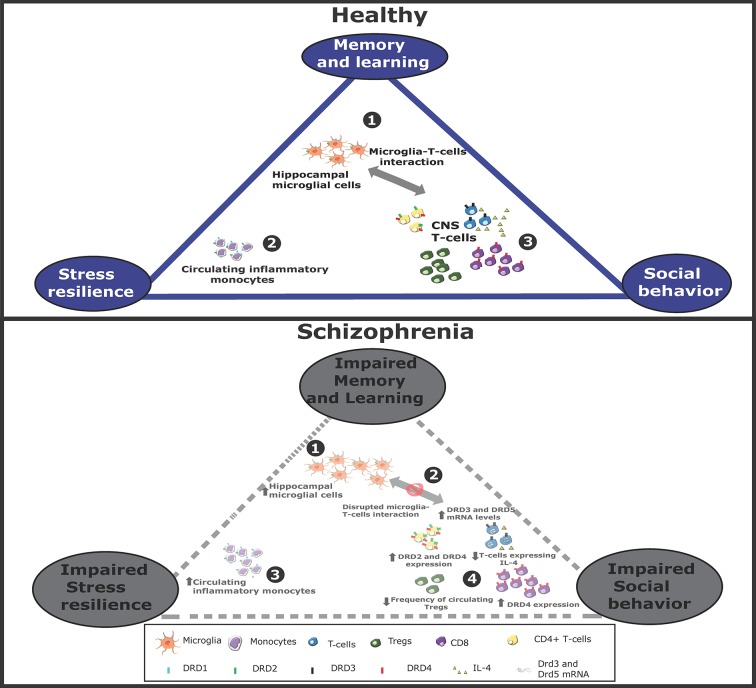Figure 1.
Altered dopaminergic signaling in monocytes, T-cells, and microglia associated to schizophrenia. Schematic representation of immune cells associated to cognitive/behavioral function in healthy conditions (top panel) or in schizophrenia (bottom panel). Top panel: In healthy conditions, 1. microglial cells stimulate to T-cells infiltrated into the CNS. 2. Peripheral monocytes might also infiltrate the brain and favor T-cell activation. 3. Activated T-cells contribute to stress resilience. Some T-cells acquire Th2 phenotype and produce IL-4, which favors neurogenesis and thereby memory and learning. Some T-cells acquire Th1 features, produce IFN-γ and promote social behavior. Bottom panel: In schizophrenia, 1. the interaction between microglia and T-cells is impaired, 2. thereby attenuating T-cell activation. Moreover, the expression of different dopamine receptors is altered, changing the extent of T-cell activation and differentiation. 3. Furthermore, the extent of peripheral monocytes and hippocampal microglia are increased, 4. whereas Treg frequency is reduced. All these changes hypothetically contribute to a reduced social behavior, decreased stress resilience and in impaired memory and learning.

